Patenting is contrary to our aims of promoting the production and dissemination of common goods. We believe inventions are born out of a multitude of ideas and influences, encounters and gleanings, and that creativity is in its very essence a collective human wealth. All our inventions are therefore licensed under Creative Commons, where they can be freely adapted, developed and appropriated.
We believe that agronomic practices need to be elaborated with, by, and for farmers. More generally, we think that Technology is a collective asset which should serve the interests of those who use it. Farming skills and expertise are common goods of the organic farming movement. We would like bring these together to compile a open source encyclopaedia (modelled on initiatives like Wikipedia and open source computer programmes and designs). As well as ensuring our tools do not get patented, the Creative Commons label clearly articulates our approach and vision: to create and disseminate farm innovations which can be modified, distributed and appropriated by all.
Atelier Paysan promotes open innovation, based on the idea that users benefit from being involved in the process of creation and development. The collective production of common goods in physical and digital spaces has been developed by urban open-source communities such as Hackspaces or Fab-Lab, where skills and expertise are re-appropriated through the design, creation or repair of everyday objects. These initiatives include both community education and technical innovation. Atelier Paysan is developing rural versions of these community-operated communities, which we have named “Farm Labs”.







